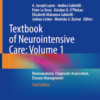Clinical Performance of Beta-D-Glucan for the Diagnosis of Pneumocystis Pneumonia in Cancer Patients Tested with PCP PCR
academic.oup.comPatients negative by both Beta-D glucan (BDG) and PCR were unlikely to have Pneumocystis pneumonia (PCP). In patients with a compatible clinical syndrome for PCP, higher BDG values (>200 pg/mL) were consistently associated with clinically significant PCP infections among PCP PCR positive oncology patients. With PCP PCR alone as the reference method, BDG (≥ 80 pg/mL) had a sensitivity of 69.8% and a specificity of 81.2%; PPV and NPV of 34.6% and 95.2% for PCP. We performed a retrospective analysis of adult patients evaluated for PCP at our institution from 2012 to 2015, using serum BDG and PCP PCR.

















